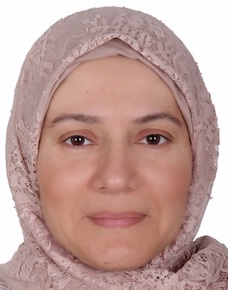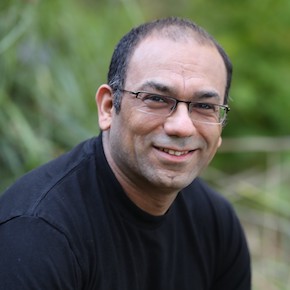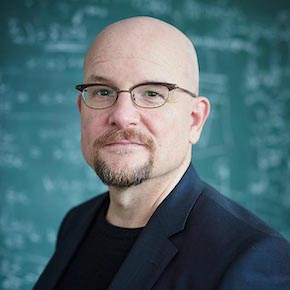This third session was a special edition, as it took place at this year’s Global Technical Meeting of the collaborative Epidemic Intelligence from Open Sources (EIOS) initiative, in Luxor, Egypt.
Together with the EIOS community, we discussed how innovative technologies - in the public health intelligence space and beyond - can be leveraged to embrace the complexity of pandemics for better pandemic preparedness and response. Dr Chikwe Ihekweazu set the scene, speaking on the WHO Pandemic Hub’s perspective on the topic, emphasizing the need to work towards a common innovation pathway for emerging technologies in the surveillance space. Our keynote speaker, Professor Dirk Brockmann, biologist and computational epidemiologist from Humboldt University Berlin, introduced us to a complexity science perspective on pandemic intelligence. Afterwards, we heard comments from two public health practitioners on digital solutions applications in their daily work: Dr Nada Ghosn, who leads the Epidemiological Surveillance Programme at the Ministry of Health in Lebanon and Ms Kyeng Mercy Tetuh who works in the Africa Centres for Disease Control and Prevention in building capacities for member states on event-based surveillance. The event was rounded off with a panel discussion, facilitated by moderator Dr Philip Abdelmalik, WHO Head of the Intelligence Innovation and Integration Unit.
Speakers
Professor Dirk Brockmann | Keynote
Complexity Scientist, Professor in the Department of Biology at Humboldt University of Berlin & Leader of Project Group on Computational Epidemiology at Robert Koch Institute
Professor Brockmann is a Professor in the Department of Biology at Humboldt University of Berlin. He also heads the project group Computational Epidemiology at the Robert Koch-Institute. Before his appointments in Berlin, he was Professor in the Department of Applied Mathematics and the Northwestern Institute on Complex Systems (NICO) at Northwestern University in Chicago. A theoretical physicist by training, Professor Brockmann has had 20 years of interdisciplinary research experience working on fields as diverse as neuroscience, network science, infectious disease dynamics and collective behavior in human and animal populations. In his research, Professor Brockmann and his team approach complex phenomena on the interface of life sciences, social sciences and medical sciences using an integrative approach of computational methods, network science and data science. Professor Brockmann was among the first scientists that developed computational models for the global spread of infectious diseases on the worldwide air transportation network. He has been applying global modelling approaches in the context of SARS 2003, the 2009 influenza pandemic, and, naturally during the past two years in the context of the COVID-19 crisis. Professor Brockmann believes in the values and benefits of transdisciplinary attitudes in science, the intentional breach of borders between traditional scientific disciplines.
Kyeng Mercy Tetuh | Comment & Panel

Coordinator for event-based surveillance at the African Centers for Disease Control
Ms Tetuh is an Epidemiologist with over ten years of experience in strengthening health systems in detecting and responding promptly to public health threats at the national, regional, and continental level. She currently leads the Event-Based Surveillance program of the Africa CDC, which is supporting the establishment of early warning systems to improve the early detection and reporting of public health threats. Her work involves building capacity for Member States on Event-Based Surveillance (EBS), establishing regional EBS communities and leading the development of event management systems for the capture, analysis, retrieval and reporting of both structured and unstructured data for Africa CDC and African Union Member States. Prior to joining Africa CDC, Ms Tetuh served as Executive Director for Value Health Africa where she developed and coordinated projects on non-communicable diseases and sexual and reproductive health impacting over 20 communities in Cameroon. She has received several national and international recognitions, among which are the Obama Young Leaders Award and the Young African Dreamers Achievers Award. Ms Tetuh holds a master’s degree in public health and epidemiology from the Catholic University of Central Africa, she speaks fluent English and French.
Dr Nada Ghosn | Comment & Panel

Head of the Epidemiological Surveillance Programme at the Ministry of Health Lebanon
Dr Ghosn has been the head of the Epidemiological Surveillance Program (ESUMOH) at the Lebanese Ministry of Public Health, since July 2000. At the ESUMOH, she works to enhance communicable diseases surveillance systems, build national capacity for disease surveillance and outbreak investigation, and provide weekly updated epidemiological figures on the website of the Ministry of Health, Lebanon. In 2007, Dr Ghosn worked to integrate the National Cancer Registry within the ESUMOH. Since 2004, she has contributed to the Mediterranean Programme for Intervention Epidemiology Training (MediPIET), in which ESUMOH is designated as the MediPIET training site. From 2004 to 2015, she contributed to various WHO missions through the Global Outbreak, Alert and Response Network. Since 2020, she leads the Lebanese national team in charge of COVID-19 surveillance and investigation, including contact tracing and generation of the national daily COVID-19 surveillance report. Since 2022, she leads the surveillance investigation of the Cholera outbreak in Lebanon. In October 2022, she was awarded the Lebanese second class of the Order of Merit for her contribution to COVID-19 surveillance and control. In addition to her work in the public sector, Dr Ghosn has been a lecturer in the Faculty of Public Health at Lebanese University, teaching Epidemiology and Epidemiological Surveillance, since 2010.
Dr Philip Sami Onsy AbdelMalik | Moderation

WHO Lead of Intelligence Innovation and Integration Unit, Epidemic Intelligence from Open Sources initiative at WHO Health Emergencies Programme
Dr AbdelMalik is an epidemiologist and public health informatician, passionate about creative and cross-disciplinary ways to enhance public health practice and capacity. With over 20 years of experience in the health domain, he currently leads and manages an interdisciplinary team within WHO's Health Emergencies Programme, building and strengthening public health intelligence around the globe. This includes the flagship Epidemic Intelligence from Open Sources (EIOS) initiative which is a cornerstone of the WHO Hub for Pandemic and Epidemic Intelligence. Prior to joining WHO, Dr AbdelMalik co-directed the Canadian Field Epidemiology Program and worked extensively with the Global Public Health Intelligence Network (GPHIN) at the Public Health Agency of Canada. Dr AbdelMalik holds a Ph.D. in Public Health Informatics awarded jointly by the Universities of Plymouth and Exeter in the UK, as well as a Master of Health Science (MHSc) in Epidemiology and Community Health and an Honours BSc with a specialization in Human Biology, both from the University of Toronto, Canada.

